17 results in Local History and Memoirs
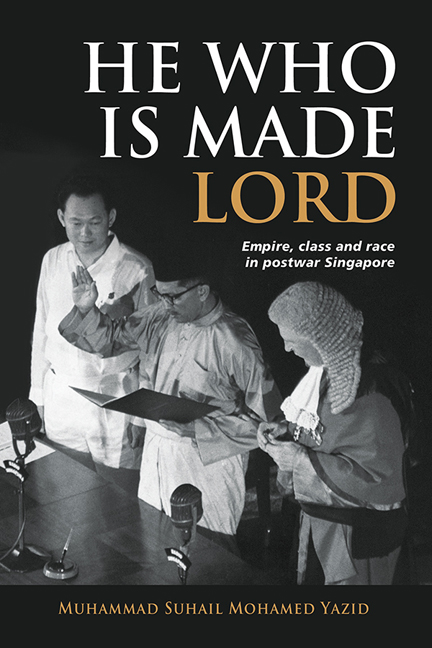
He Who Is Made Lord
- Empire, Class and Race in Postwar Singapore
-
- Published by:
- ISEAS–Yusof Ishak Institute
- Published online:
- 01 March 2024
- Print publication:
- 22 June 2023
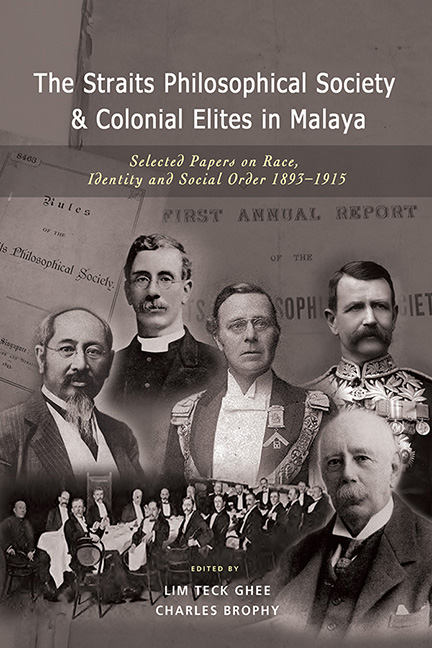
The Straits Philosophical Society and Colonial Elites in Malaya
- Selected Papers on Race, Identity and Social Order 1893-1915
-
- Published by:
- ISEAS–Yusof Ishak Institute
- Published online:
- 09 January 2024
- Print publication:
- 18 January 2023
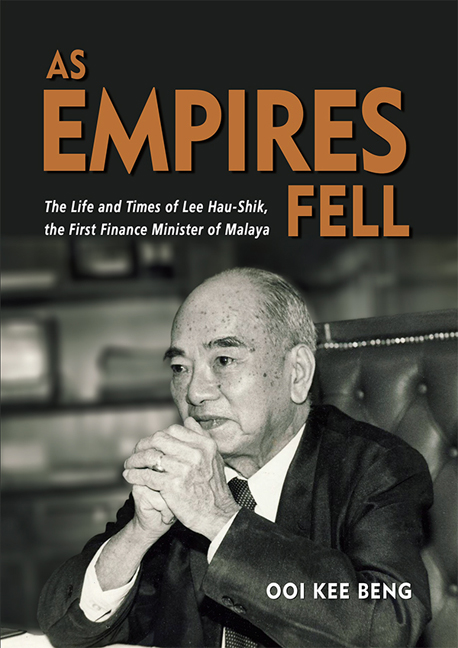
As Empires Fell
- The Life and Times of Lee Hau-Shik, the First Finance Minister of Malaya
-
- Published by:
- ISEAS–Yusof Ishak Institute
- Published online:
- 24 November 2020
- Print publication:
- 22 June 2020
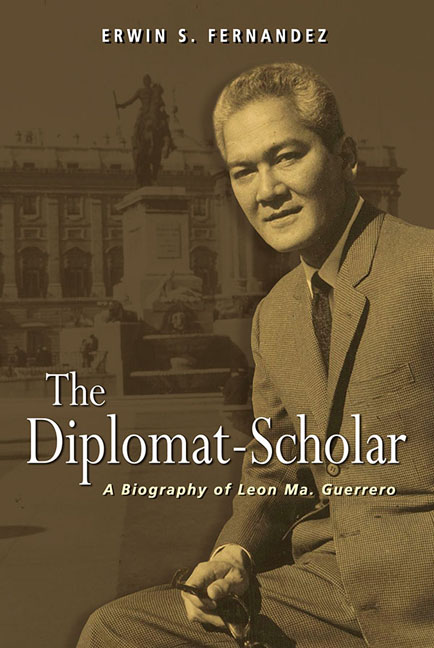
The Diplomat-Scholar
- A Biography of Leon Ma. Guerrero
-
- Published by:
- ISEAS–Yusof Ishak Institute
- Published online:
- 12 January 2018
- Print publication:
- 27 April 2017
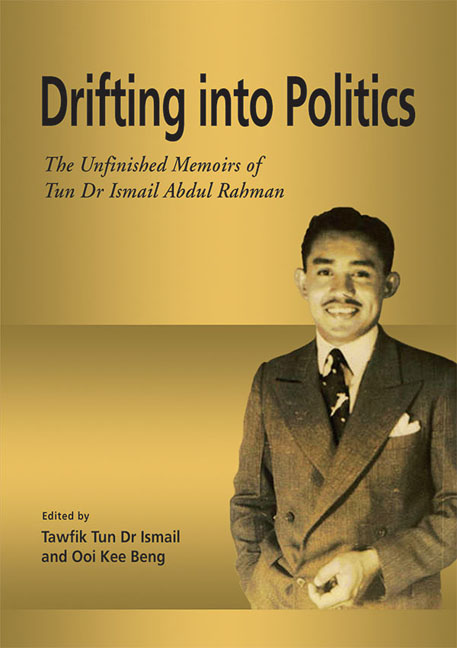
Drifting into Politics
- The Unfinished Memoirs of Tun Dr Ismail Abdul Rahman
-
- Published by:
- ISEAS–Yusof Ishak Institute
- Published online:
- 19 May 2017
- Print publication:
- 15 October 2015
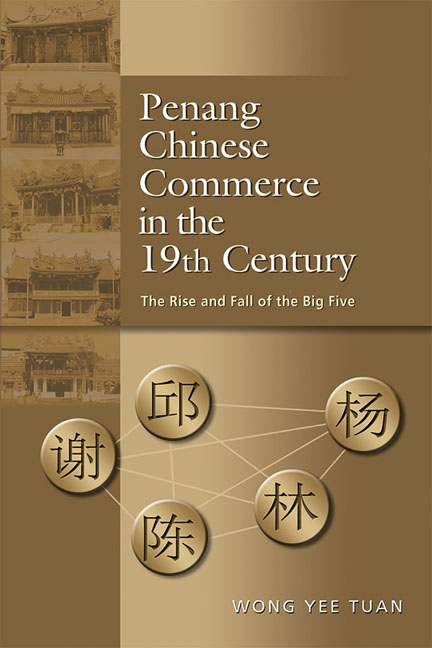
Penang Chinese Commerce in the 19th Century
- The Rise and Fall of the Big Five
-
- Published by:
- ISEAS–Yusof Ishak Institute
- Published online:
- 19 May 2017
- Print publication:
- 20 October 2015
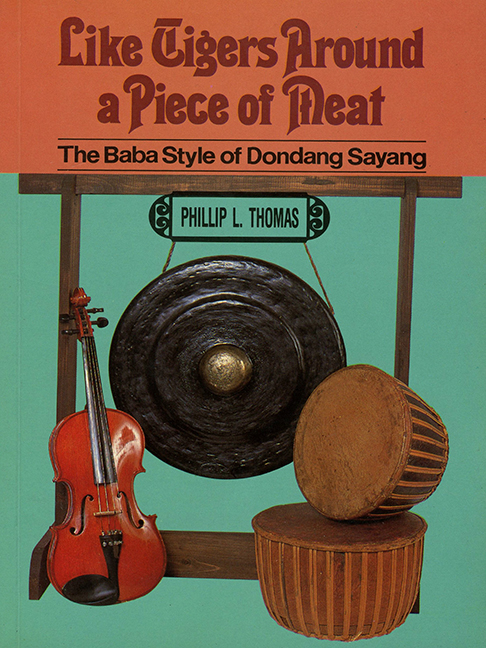
Like Tigers Around a Piece of Meat
- The Baba Style of Dondang Sayang
-
- Published by:
- ISEAS–Yusof Ishak Institute
- Published online:
- 21 October 2015
- Print publication:
- 01 January 1986
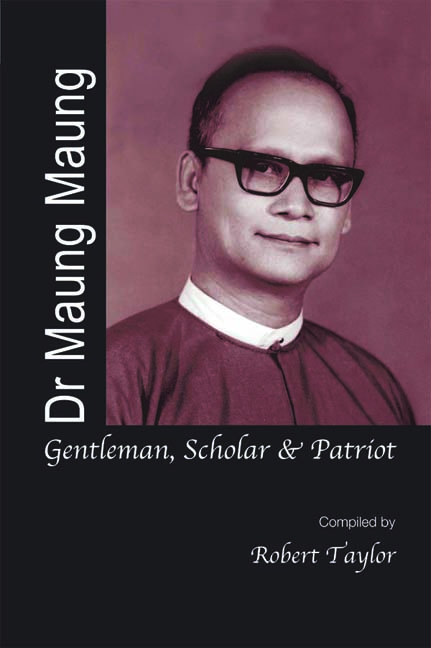
Dr Maung Maung
- Gentleman, Scholar, Patriot
-
- Published by:
- ISEAS–Yusof Ishak Institute
- Published online:
- 21 October 2015
- Print publication:
- 01 April 2008
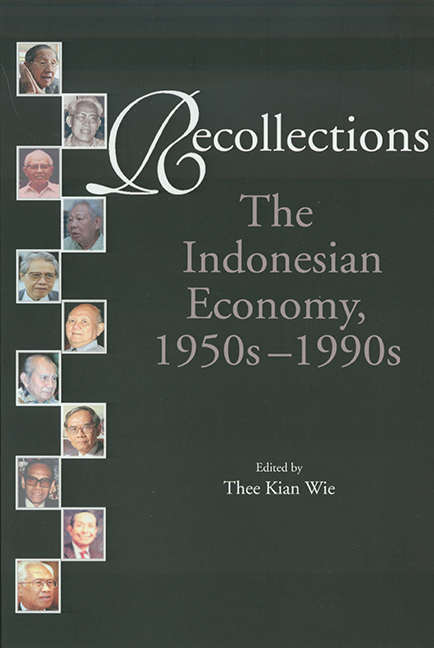
Recollections
- The Indonesian Economy, 1950s–1990s
-
- Published by:
- ISEAS–Yusof Ishak Institute
- Published online:
- 21 October 2015
- Print publication:
- 29 September 2003
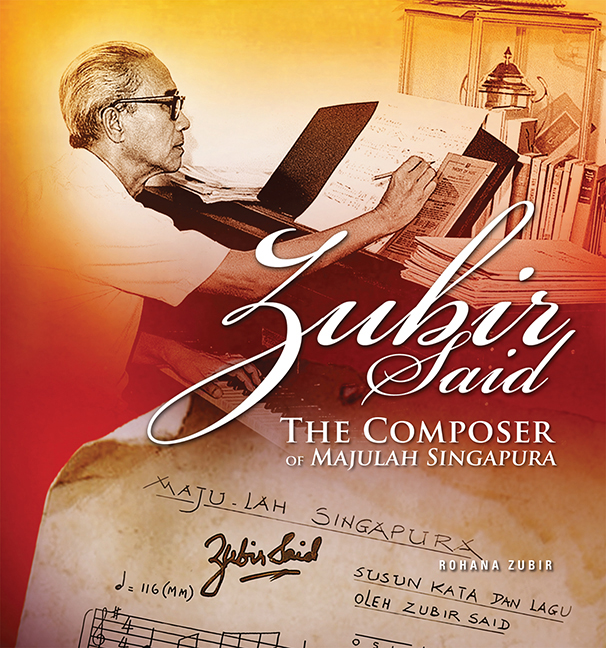
Zubir Said, the Composer of Majulah Singapura
-
- Published by:
- ISEAS–Yusof Ishak Institute
- Published online:
- 21 October 2015
- Print publication:
- 27 September 2012
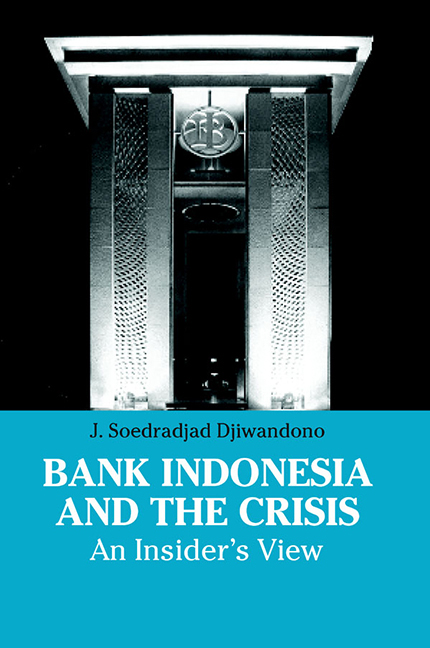
Bank Indonesia and the Crisis
- An Insider's View
-
- Published by:
- ISEAS–Yusof Ishak Institute
- Published online:
- 21 October 2015
- Print publication:
- 12 September 2005
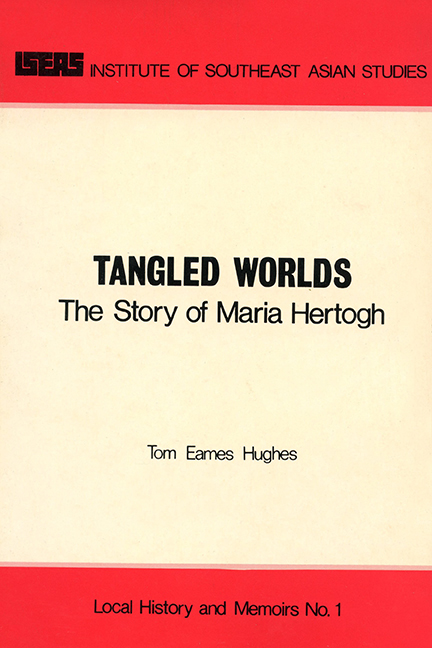
Tangled Worlds
- The Story of Maria Hertogh
-
- Published by:
- ISEAS–Yusof Ishak Institute
- Published online:
- 21 October 2015
- Print publication:
- 01 January 1980
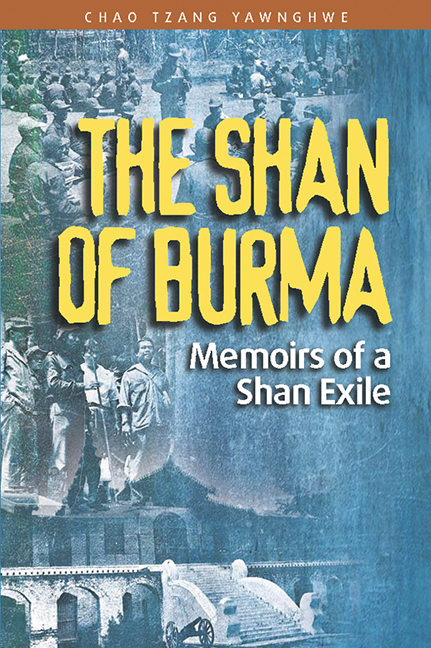
The Shan of Burma
- Memoirs of a Shan Exile
-
- Published by:
- ISEAS–Yusof Ishak Institute
- Published online:
- 21 October 2015
- Print publication:
- 30 April 2010
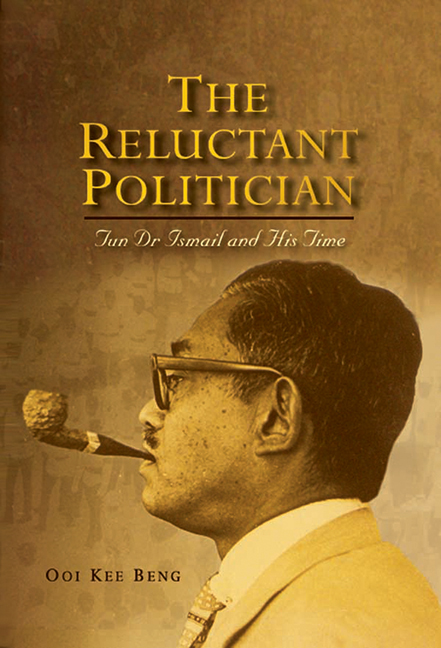
The Reluctant Politician
- Tun Dr Ismail and His Time
-
- Published by:
- ISEAS–Yusof Ishak Institute
- Published online:
- 21 October 2015
- Print publication:
- 03 January 2007
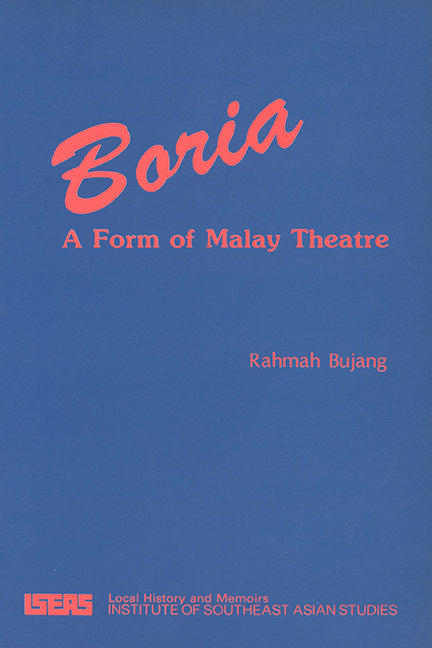
Boria
- A Form of Malay Theatre
-
- Published by:
- ISEAS–Yusof Ishak Institute
- Published online:
- 21 October 2015
- Print publication:
- 01 January 1987
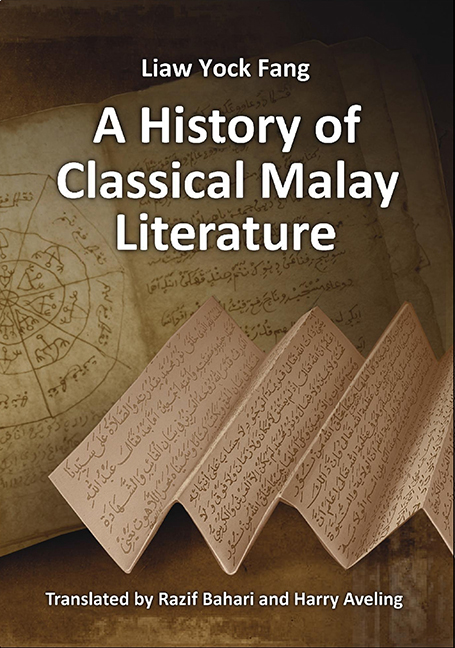
A History of Classical Malay Literature
-
- Published by:
- ISEAS–Yusof Ishak Institute
- Published online:
- 21 October 2015
- Print publication:
- 01 July 2013
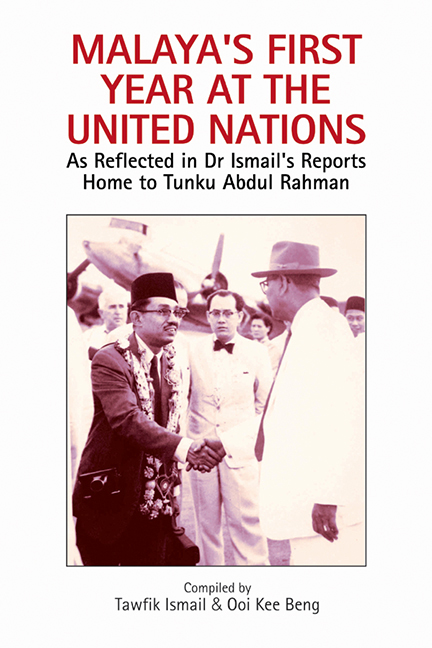
Malaya's First Year at the United Nations
- As Reflected in Dr Ismail's Reports Home to Tunku Abdul Rahman
-
- Published by:
- ISEAS–Yusof Ishak Institute
- Published online:
- 21 October 2015
- Print publication:
- 26 November 2008

